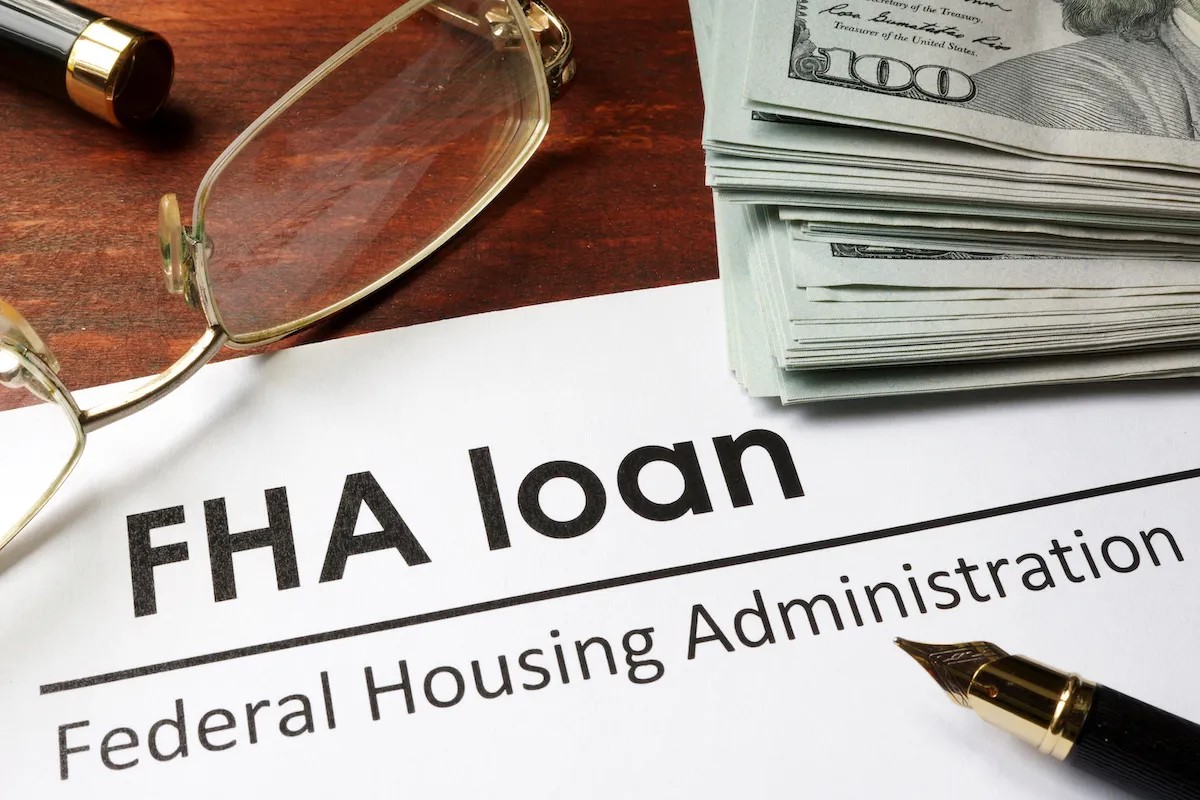Home>diy>Home Improvement>How To Get A Home Renovation Loan


Home Improvement
How To Get A Home Renovation Loan
Modified: January 19, 2024
Looking to renovate your home but need financial assistance? Discover how to get a home renovation loan for your home-improvement projects and turn your dreams into reality.
(Many of the links in this article redirect to a specific reviewed product. Your purchase of these products through affiliate links helps to generate commission for Storables.com, at no extra cost. Learn more)
Introduction
Renovating your home can be an exciting yet daunting task. Whether you’re looking to upgrade your kitchen, add an extra room, or give your entire living space a makeover, the cost of home renovations can add up quickly. This is where a home renovation loan can come to your rescue.
A home renovation loan is a type of loan that provides the necessary funds to cover the expenses of renovating or repairing your home. It is a financial solution that allows you to embark on your dream home improvement project without depleting your savings or disrupting your monthly budget.
Understanding how to obtain a home renovation loan, the types available, and the application process is crucial to ensure a smooth and successful experience. This comprehensive guide will provide you with all the information you need to know about home renovation loans, making the loan application process hassle-free.
Whether you’re a first-time homeowner looking to make some upgrades or an experienced homeowner planning a major renovation, this guide will help you navigate the world of home renovation loans and make informed decisions.
Key Takeaways:
- Home renovation loans provide the necessary funds to transform your living space without depleting your savings or disrupting your budget, making your dream home improvement project a reality.
- Understanding the different types of home renovation loans, assessing your eligibility criteria, and choosing the right lender are crucial steps to ensure a smooth and successful loan application process.
Read more: How To Get A Loan To Do Home Improvements?
Understanding Home Renovation Loans
Home renovation loans are specifically designed to help homeowners finance their renovation or repair projects. These loans provide the funds needed to cover the costs of materials, labor, and any additional expenses associated with the renovation.
One of the key benefits of a home renovation loan is that it allows you to borrow a substantial amount of money, which you can repay in affordable monthly installments over a specified period. Depending on the lender and the terms of the loan, you may be eligible for a loan amount that ranges from a few thousand dollars to several hundred thousand dollars.
Home renovation loans can be divided into two main categories: secured and unsecured loans.
- Secured loans: Secured home renovation loans require collateral, such as your home or other valuable assets, to secure the loan. This means that if you’re unable to repay the loan, the lender has the right to seize the collateral to recover the outstanding amount. Secured loans typically come with lower interest rates and higher loan amounts, making them an attractive option for homeowners with valuable assets.
- Unsecured loans: Unsecured home renovation loans do not require collateral. Instead, they are granted based on your creditworthiness and repayment ability. Since these loans come with a higher risk for the lender, they generally have higher interest rates and lower loan amounts compared to secured loans. However, unsecured loans offer the advantage of not risking any collateral.
Before applying for a home renovation loan, it’s essential to assess your financial situation and determine the loan amount you will need for your renovation project. Consider factors such as the scope of the renovation, estimated expenses, and any additional costs that may arise during the process. Having a clear understanding of your financial needs will enable you to choose the most suitable loan option.
In the next section, we will explore the different types of home renovation loans available, so you can choose the loan that best fits your requirements and goals.
Types of Home Renovation Loans
When it comes to home renovation loans, there are several options available to choose from. Each type of loan has its own set of features and eligibility criteria, allowing you to select the one that best suits your financial needs. Here are the most common types of home renovation loans:
- Home Equity Line of Credit (HELOC): A HELOC is a revolving line of credit that allows homeowners to borrow against the equity they have built in their homes. With a HELOC, you can access funds as needed, similar to a credit card. The interest rates on a HELOC are typically lower than other types of loans, and you only pay interest on the amount you borrow. This type of loan is suitable for ongoing renovation projects or for homeowners who want flexibility in accessing funds.
- Home Equity Loan: A home equity loan, also known as a second mortgage, allows you to borrow a lump sum of money based on the equity in your home. The loan is repaid in fixed monthly installments over a specified period. Home equity loans often have fixed interest rates, making it easier to budget for repayments. This loan option is ideal for projects that require a large sum of money upfront, such as major renovations or home additions.
- Personal Loan: A personal loan is an unsecured loan that can be used for various purposes, including home renovations. This type of loan is typically based on your creditworthiness, and the interest rates and loan terms may vary depending on your credit score. Personal loans offer flexibility in terms of loan amount and repayment period, but they often come with higher interest rates compared to secured loans.
- Refinance Mortgage: Refinancing your existing mortgage allows you to replace your current loan with a new one, often at a lower interest rate. By refinancing, you can access the equity in your home and use the extra cash for renovations. Keep in mind that refinancing your mortgage involves additional fees and may extend the repayment period of your loan. This option is suitable for homeowners who want to merge their renovation loan with their existing mortgage.
Deciding which type of home renovation loan is right for you depends on factors such as your financial situation, the scope of your renovation project, and your creditworthiness. It’s important to carefully evaluate the terms and conditions of each loan option and choose the one that aligns with your needs and goals.
In the next section, we will dive into the process of applying for a home renovation loan, including the eligibility criteria and the documents required.
Applying for a Home Renovation Loan
Now that you have a clear understanding of the types of home renovation loans available, it’s time to delve into the application process. Applying for a home renovation loan involves several steps, and being prepared can increase your chances of a successful application. Here’s a step-by-step guide to applying for a home renovation loan:
- Evaluate your needs: Before applying for a loan, determine the exact amount you need for your renovation project. Consider the scope of the renovations, estimated costs, and any additional expenses that may arise. Having a clear idea of your financial needs will help you choose the right loan amount.
- Research lenders: Conduct thorough research to identify reputable lenders that offer home renovation loans. Compare interest rates, loan terms, repayment options, and customer reviews to find the lender that best suits your requirements.
- Check eligibility criteria: Review the eligibility criteria set by the lender to ensure you meet the requirements. This may include factors such as credit score, income stability, employment history, and the equity you have in your home. It’s important to note that each lender may have different criteria, so be sure to check the specific requirements of the lender you choose.
- Prepare necessary documents: Gather all the required documents for the loan application. These typically include identification proof, income proof, bank statements, tax returns, and documentation related to the renovation project, such as estimates or contractor agreements. Having these documents ready beforehand will make the application process smoother.
- Submit the application: Complete the loan application form provided by the lender. Be sure to fill out all the required information accurately and provide any additional documents as requested. Double-check the application before submitting it to avoid any errors or omissions.
- Wait for approval: After submitting the application, the lender will review your information and assess your creditworthiness. The approval process may take some time, so be patient. Once your loan is approved, carefully review the terms and conditions, including interest rates, repayment schedule, and any applicable fees.
- Sign the agreement and receive funds: If you’re satisfied with the loan terms, sign the loan agreement and return it to the lender. Upon receipt, the lender will disburse the funds to your bank account. You can then use the funds to initiate your renovation project.
Keep in mind that the application process may vary slightly depending on the lender. It’s essential to communicate with the lender directly and seek clarification if you have any questions or concerns during the application process.
In the next sections, we will discuss the eligibility criteria and documents required for a home renovation loan application in more detail.
Eligibility Criteria for a Home Renovation Loan
Before applying for a home renovation loan, it’s important to understand the eligibility criteria set by lenders. Meeting these criteria increases your chances of loan approval. While specific requirements may vary among lenders, here are some common eligibility criteria for a home renovation loan:
- Credit score: Lenders typically look at your credit score to assess your creditworthiness. A higher credit score demonstrates responsible financial behavior and makes you more likely to qualify for a loan. However, some lenders may offer loans to individuals with lower credit scores, although they may come with higher interest rates.
- Income stability: Lenders will evaluate your income stability to ensure that you can comfortably repay the loan. This includes assessing your employment history, income level, and debt-to-income ratio. Demonstrating a steady income and minimal debt will increase your chances of loan approval.
- Equity in your home: Some lenders may require you to have a certain amount of equity in your home to qualify for a home renovation loan. Equity is the difference between the market value of your home and the outstanding balance on your mortgage. The higher your equity, the better your chances of securing a loan.
- Debt-to-income ratio: Lenders assess your debt-to-income ratio, which compares your monthly debt payments to your monthly income. A lower debt-to-income ratio indicates that you have enough income to cover your existing debts and the loan repayment. Most lenders prefer a debt-to-income ratio below 43%.
- Age and citizenship: You must be of legal age and a citizen or permanent resident of the country where you’re applying for the loan.
These are general eligibility criteria, but it’s important to note that each lender may have specific requirements and additional criteria. It’s recommended to check with your chosen lender to ensure you meet all the eligibility criteria before applying for a home renovation loan.
Next, we will discuss the documents you’ll typically need for a home renovation loan application, so you can gather them in advance and streamline the loan process.
Read more: How To Get Money For Home Renovation
Documents Required for a Home Renovation Loan Application
Applying for a home renovation loan requires gathering various documents to support your loan application. While the exact documentation may vary depending on the lender and your individual circumstances, here are the common documents generally required for a home renovation loan application:
- Identification proof: You will typically need to provide a copy of your identification documents, such as a valid passport, driver’s license, or government-issued ID card. This helps the lender verify your identity.
- Proof of income: Lenders will require proof of your income to assess your repayment capacity. This can include recent pay stubs, employment contracts, or tax returns for self-employed individuals. You may also need to provide documentation of any additional sources of income, such as rental income or investments.
- Bank statements: Lenders often request bank statements for a specified period to evaluate your financial history and ensure you have sufficient funds to cover loan repayments. These statements should typically cover the last three to six months and should reflect your income, expenses, and any existing debts.
- Tax returns: Depending on the lender’s requirements, you may need to provide copies of your recent tax returns. This allows the lender to verify your reported income and assess your financial stability.
- Estimates or contractor agreements: To support your home renovation loan application, you may need to submit detailed estimates or contractor agreements outlining the scope of the renovation project, anticipated costs, and timelines. These documents give the lender a clear understanding of how the loan funds will be used.
- Property documents: If you’re applying for a secured home renovation loan, you may be required to provide property-related documents. These may include property deeds, ownership certificates, and proof of property value, such as recent appraisals or property assessments.
- Additional documentation: Depending on your specific circumstances and the lender’s requirements, additional documentation may be requested. This can include proof of insurance, previous loan statements, or any other documentation related to your financial situation or the renovation project.
It’s essential to prepare all the necessary documents before submitting your home renovation loan application. The completeness and accuracy of your documentation will help expedite the loan approval process and increase your chances of securing the loan.
In the next section, we will discuss the factors you should consider when choosing the right lender for your home renovation loan.
Before applying for a home renovation loan, make sure to have a clear and detailed renovation plan in place. This will help the lender understand the scope of the project and increase your chances of approval.
Choosing the Right Lender
Choosing the right lender for your home renovation loan is crucial to ensure a smooth and successful borrowing experience. With numerous lenders available, it’s important to consider several factors before making your decision. Here are some key factors to consider when choosing the right lender:
- Interest rates and fees: Compare the interest rates and fees offered by different lenders. Lower interest rates can save you money in the long run, while reasonable fees minimize your upfront costs. Be sure to understand the impact of interest rates and fees on your overall loan repayment.
- Loan terms and flexibility: Evaluate the loan terms and repayment options offered by each lender. Look for flexibility in terms of repayment schedule, prepayment penalties, and any other terms that may affect your ability to manage the loan. Choosing a lender with favorable loan terms can make your repayment journey more manageable.
- Customer service and reputation: Research the lender’s reputation and customer service track record. Read reviews from other borrowers to gauge their satisfaction and how responsive the lender is to inquiries and concerns. A reputable lender with good customer service can provide you with the support you need throughout the loan process.
- Loan amount and eligibility: Consider the loan amount limit and eligibility criteria set by the lender. Ensure that the lender offers a loan amount that satisfies your needs for the renovation project, and that you meet their eligibility requirements. Some lenders may require a higher credit score or a specific level of income stability.
- Additional services and resources: Some lenders may offer additional services or resources that can enhance your borrowing experience. This can include online account management tools, educational resources on home renovations, or personalized assistance from loan officers. Assess these extra offerings to determine if they align with your preferences and needs.
- Recommendations and referrals: Seek recommendations or referrals from friends, family, or trusted professionals who have recently obtained a home renovation loan. Their insights and experiences can provide valuable guidance in choosing a lender who has a track record of delivering excellent service and favorable loan terms.
By considering these factors and conducting thorough research, you can make an informed decision when choosing the right lender for your home renovation loan. Remember to compare multiple lenders to ensure you find the one that best meets your needs and financial goals.
In the next section, we will discuss important factors to consider before taking a home renovation loan, helping you make a well-informed decision.
Factors to Consider Before Taking a Home Renovation Loan
Before taking a home renovation loan, it’s essential to carefully consider several factors to ensure that it aligns with your financial goals and circumstances. Taking the time to evaluate these factors will help you make an informed decision and avoid any potential pitfalls. Here are some key factors to consider:
- Budget and affordability: Assess your budget and determine how much you can comfortably afford to borrow and repay each month. Consider your monthly income, existing expenses, and any potential changes in your financial situation. Be realistic about what you can afford to avoid overburdening yourself with excessive debt.
- Renovation scope and cost: Identify the scope of your renovation project and estimate the total cost. Consider all aspects, including materials, labor, permits, and any unexpected expenses. Make sure the loan amount you are considering will cover the entire project and leave room for unforeseen costs.
- Loan repayment period: Decide on the ideal repayment period for your loan. Shorter repayment periods may result in higher monthly installments but can save you money on interest in the long run. Longer repayment periods may offer lower monthly payments but can end up costing more due to accumulated interest. Choose a repayment period that fits within your budget and financial goals.
- Interest rates and fees: Pay attention to the interest rates and fees associated with the loan. Compare rates from different lenders and understand the impact of interest rates and fees on your loan repayment. Be cautious of hidden fees and consider negotiating with lenders to secure the most favorable terms.
- Financial stability: Evaluate your financial stability and income sources. Consider your job security, potential for income growth, and ability to handle unexpected expenses. Ensure you have a stable financial foundation to confidently take on the loan and meet your repayment obligations.
- Impact on property value: Understand the potential impact of your renovation project on the value of your property. Some renovations may significantly increase the value, making it easier to recover the loan amount if you decide to sell in the future. Research the real estate market and consult with experts to assess the potential return on investment for your specific renovations.
- Alternative financing options: Explore alternative financing options before solely relying on a home renovation loan. You may be eligible for government grants, local assistance programs, or refinancing options that could provide more favorable terms. Research all available options and compare them against the home renovation loan to make the best decision.
By carefully considering these factors, you can make a well-informed decision about taking a home renovation loan that aligns with your financial situation and goals. Remember to consult with financial advisors or professionals if you need additional guidance in assessing your financial capabilities and the potential impact of the loan.
In the next section, we will explore the various repayment options available for a home renovation loan, helping you choose the most suitable approach for your financial needs.
Repayment Options for a Home Renovation Loan
When it comes to repaying your home renovation loan, there are several options available to suit different financial situations and preferences. Understanding these repayment options can help you choose the most suitable approach for your needs. Here are the common repayment options for a home renovation loan:
- Fixed Monthly Installments: This is the most common repayment option for home renovation loans. With fixed monthly installments, you repay a fixed amount of money each month for the duration of the loan term. This option provides predictability and helps you budget your loan payments more effectively.
- Interest-Only Payments: Some lenders offer the option to make interest-only payments for a certain period, typically at the beginning of the loan term. During this period, you only pay the interest accrued on the loan. This option allows for lower monthly payments initially, but keep in mind that the principal balance will still need to be repaid later on.
- Principal and Interest (P&I) Payments: With principal and interest payments, you repay both the interest and a portion of the principal amount each month. This option is the most common and ensures that you gradually reduce the outstanding loan balance over time.
- Flexible or Adjustable Repayment: Some lenders provide the flexibility to adjust your loan repayments according to your financial situation. This may include options to increase or decrease your installment amount or make additional payments without penalties. Such flexibility allows you to adjust your repayment strategy based on changes in your income or financial goals.
- Early Repayment or Prepayment: Consider whether the lender allows for early repayment or prepayment of your home renovation loan. Early repayment allows you to pay off the loan before the scheduled term ends. Prepayment options can help you save on interest payments by paying off a lump sum or making additional payments above the required monthly installment.
When choosing a repayment option, consider your budget, future financial plans, and the overall cost of the loan. While some repayment options may offer lower monthly payments initially, they may result in higher overall interest payments. On the other hand, opting for higher monthly installments may allow you to pay off the loan faster and save on interest charges.
It’s crucial to review the terms and conditions provided by the lender for each repayment option and clearly understand how they will affect your loan repayment journey. Choose the option that aligns with your financial goals and allows you to comfortably manage your monthly loan payments.
In the next section, we will discuss some tips for a successful home renovation loan application process, helping you navigate the process efficiently.
Read more: How To Get On Home Renovation Shows
Tips for a Successful Home Renovation Loan Application
Applying for a home renovation loan can be a significant financial decision. To ensure a successful application and improve your chances of loan approval, consider the following tips:
- Review your credit report: Before applying for a loan, obtain a copy of your credit report and review it for any errors or discrepancies. Correcting any inaccuracies can help improve your credit score and increase your chances of loan approval.
- Improve your credit score: A higher credit score can lead to better loan terms and lower interest rates. If your credit score is lower than desired, take steps to improve it by paying bills on time, reducing credit card balances, and minimizing new credit applications.
- Assess your financial situation: Evaluate your current financial standing and carefully assess your repayment capability. Consider your income, existing debts, and monthly expenses to ensure that the loan amount you’re applying for is affordable and manageable.
- Compare multiple lenders: Don’t settle for the first lender you come across. Shop around and compare offerings from multiple lenders to find the best interest rates, loan terms, and repayment options. This allows you to choose the most competitive offer that suits your needs.
- Gather necessary documents: Collect all required documents in advance to streamline the loan application process. This includes identification proof, income statements, bank statements, estimates or contractor agreements, property documents, and any other documentation requested by the lender.
- Provide accurate information: Ensure all information provided in your loan application is accurate and up to date. Double-check the application form and supporting documents to avoid errors or discrepancies. Incomplete or incorrect information may delay the loan approval process.
- Communicate with your lender: Maintain open lines of communication with your lender throughout the application process. Stay in touch, promptly respond to any inquiries, and ask questions if you need clarification. Building a good relationship with your lender can help expedite the loan process.
- Seek professional advice: If you’re unsure about any aspect of the loan application process, consider consulting with a financial advisor or a mortgage broker. They can provide guidance, review your financial situation, and help you make informed decisions about your home renovation loan.
- Be prepared for unexpected costs: When budgeting for your renovation project, make sure to account for any unforeseen expenses that may arise. It’s wise to set aside a contingency fund to cover unexpected costs during the renovation process and ensure that you have enough funds to complete the project successfully.
By following these tips, you can increase your chances of a successful home renovation loan application. Remember, thorough preparation, attention to detail, and understanding your financial situation are key to securing the loan you need for your dream renovation project.
To conclude, a home renovation loan can provide the financial assistance you need to turn your home improvement dreams into a reality. By understanding the different types of loans, preparing the necessary documents, choosing the right lender, and considering repayment options, you can embark on your renovation journey with confidence and achieve the home of your dreams.
Conclusion
Embarking on a home renovation project is an exciting endeavor, but it often comes with significant financial considerations. A home renovation loan can provide the necessary funds to transform your living space without depleting your savings or disrupting your budget. By understanding the ins and outs of home renovation loans and following the tips outlined in this guide, you can navigate the loan application process successfully.
From understanding the different types of home renovation loans, such as secured and unsecured options, to assessing your eligibility criteria and gathering the required documents, each step is crucial to ensure a smooth loan application experience. Choosing the right lender is also essential, as it determines your interest rates, loan terms, and overall borrowing experience. Taking into account factors like interest rates, fees, loan amounts, and customer service can help you make an informed choice.
Before taking a home renovation loan, it’s important to carefully consider your budget, the scope of your renovation project, and your future financial goals. Evaluating the repayment options available, such as fixed monthly installments or interest-only payments, allows you to select the approach that best suits your financial situation.
Finally, with thorough preparation, accuracy in providing information, and open communication with your lender, you can increase the chances of a successful loan application. Consider seeking professional advice if needed and be prepared for unexpected costs that may arise during the renovation process.
In conclusion, a home renovation loan can provide the financial support you need to bring your dream home to life. By conducting thorough research, understanding your financial needs, and carefully selecting the right loan and lender, you can embark on your home renovation journey with confidence. So go ahead and turn your house into your dream home with the help of a home renovation loan!
Frequently Asked Questions about How To Get A Home Renovation Loan
Was this page helpful?
At Storables.com, we guarantee accurate and reliable information. Our content, validated by Expert Board Contributors, is crafted following stringent Editorial Policies. We're committed to providing you with well-researched, expert-backed insights for all your informational needs.














0 thoughts on “How To Get A Home Renovation Loan”